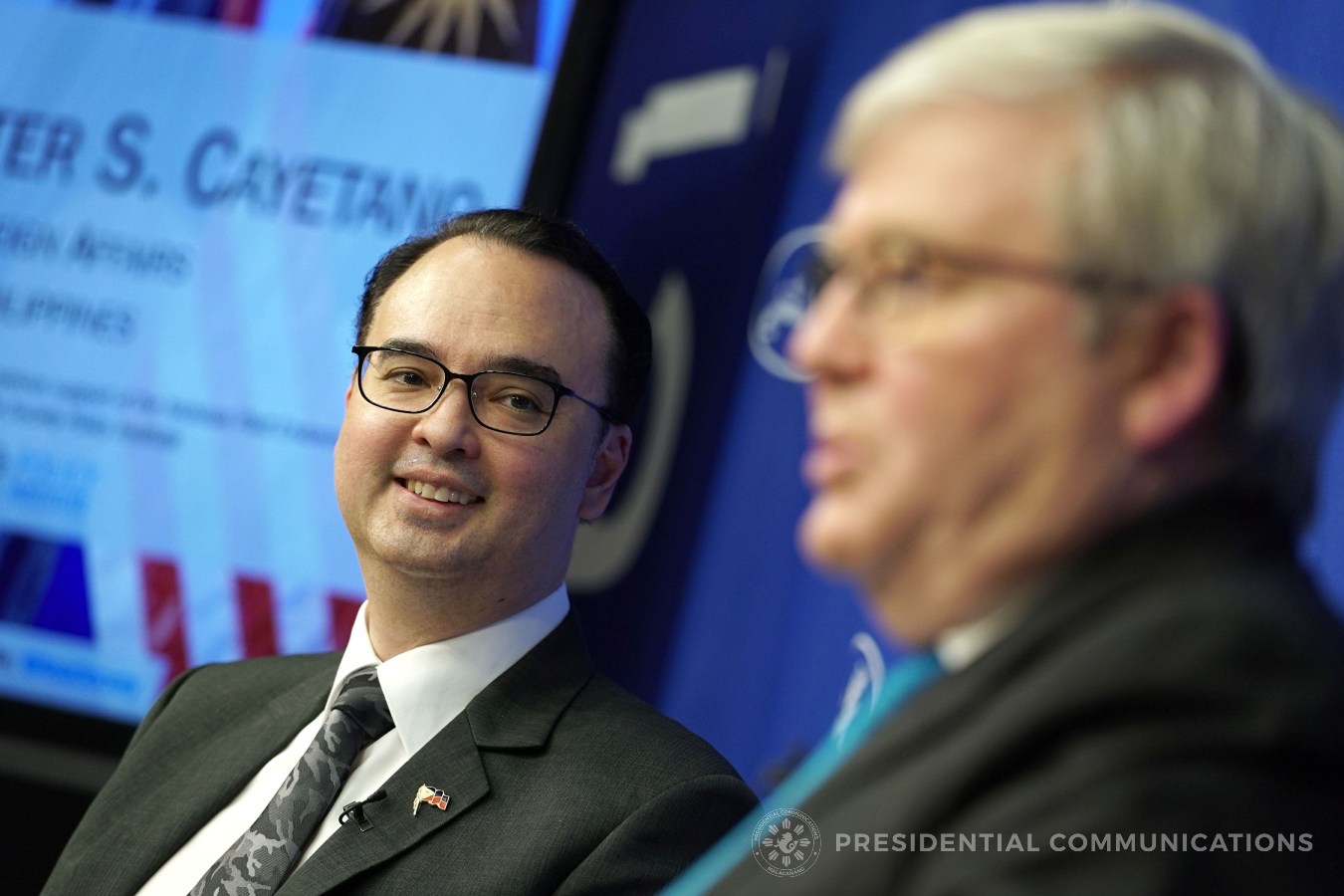News
PH commits to rules-based system in the region

Foreign Affairs Secretary Alan Peter Cayetano has assured a British minister that the Philippines is committed to maintaining a rules-based system in the region. (File Photo: KING RODRIGUEZ/PCOO photo)
MANILA — Foreign Affairs Secretary Alan Peter Cayetano has assured a British minister that the Philippines is committed to maintaining a rules-based system in the region.
The Department of Foreign Affairs (DFA) said this was relayed during Cayetano’s meeting with British Minister of State for Asia and the Pacific Mark Field on Thursday. Field was in the country on August 15-17.
“The Secretary said he also took the opportunity to assure Minister Field that the Philippines believes in maintaining a rules-based system and in engaging international organizations more actively on issues that concern them,” it said in a release sent to the media on Saturday.
The UK and Australia underscored the importance of a rules-based international system in the region during a forum held in Taguig City on Friday.
Particular on the South China Sea issue, Field has urged all claimant states to respect the freedom of navigation and international laws, including the ruling of the Permanent Court of Arbitration in The Hague.
“It is critical for regional stability, and for the integrity of the Rules-Based International System, that disputes in the region are resolved, not through force, militarization or coercion, but through dialogue and in accordance with international law,” Field said during his keynote speech.
A rules-based international order, as defined by the United Nations Association of Australia (UNAA), is a shared commitment by states to conduct their activities consistent with “agreed rules,” such as international law and regional security agreement. The UNAA is the official non-profit, non-government and membership-based organization working on behalf of the United Nations core body to promote its overall aims and ideals.
During the Friday forum, Australian Ambassador to Manila Amanda Gorely described the rules-based international order as a process of states referring a matter to an independent moderator and managing a situation politically, and at the same time, accepting the outcome on the basis that it has been decided independently.
China, Taiwan, and some ASEAN member-states, including the Philippines, Malaysia, Brunei, and Vietnam, have rival claims in the South China Sea.
Beijing and ASEAN states have been holding a series of negotiations to finish a mutually agreed Code of Conduct (COC) in the South China Sea.
The use of negotiations, including efforts to negotiate the COC, is a “constructive step,” according to Gorely.
“Maritime cooperation is important for our region, including in managing tensions in the South China Sea, where we see challenges to the global rules-based order,” she said.
“The use of negotiations, including efforts to negotiate a Code of Conduct, is a constructive step, and we urge all claimants to clarify their claims in accordance with international law and to refrain from pursuing their claims through unilateral action that destabilizes the region and increases militarization,” she added. (PNA)

